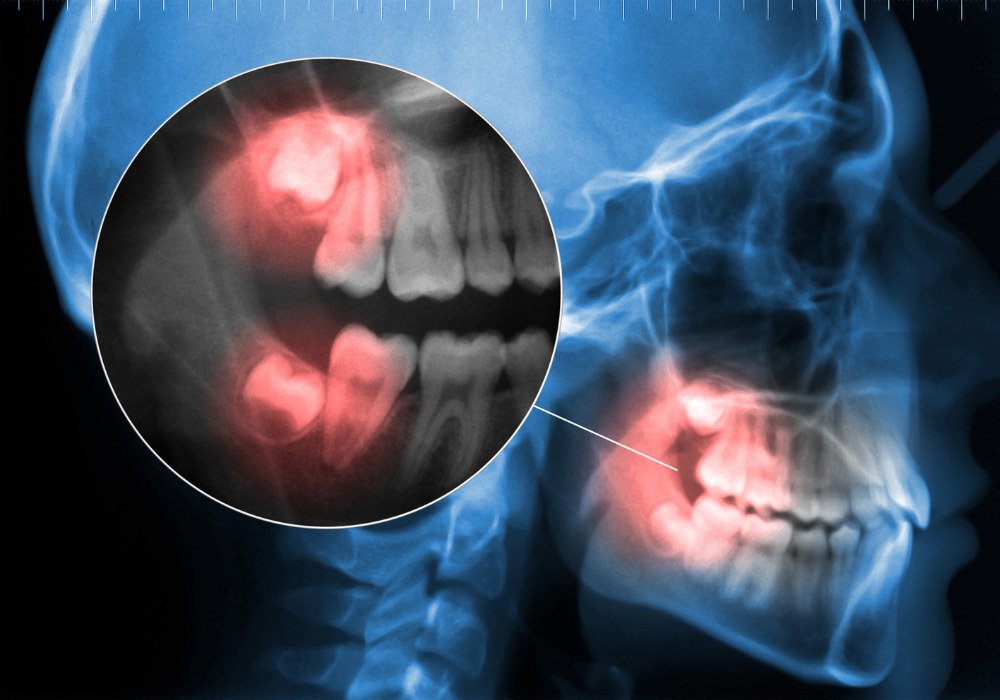Should You Remove Wisdom Teeth? Pros and Cons of Extraction

Wisdom teeth (third molars) typically erupt between the ages of 17 and 25. These teeth often erupt in maturity, when the jaw has completely formed and there is frequently not enough space for them to grow correctly. That’s why the question of whether to remove wisdom teeth arises frequently, especially when they’re asymptomatic but have the potential to cause issues.
In this article, we will discuss when wisdom teeth extraction is required, the advantages and disadvantages of the procedure, and factors to take into account before choosing to have them out.
What Are Wisdom Teeth and Why Do They Cause Problems?
Up to four wisdom teeth, one in each jaw corner, are the final permanent teeth to erupt in the mouth.
However:
- Some people never develop wisdom teeth at all (which is completely normal).
- Others can have teeth that are impacted, meaning they can’t erupt completely or are developing at the wrong angle.
This can lead to gum inflammation, discomfort, trouble cleaning, cavities, moving of neighboring teeth, or even the development of cysts.
When Removing Wisdom Teeth Is the Right Decision
- Improper Growth or Impaction
Inflammation, discomfort, misalignment or cysts may result from a tooth that is growing sideways, pressing against neighboring teeth or partially trapped under the gum line.
Extraction is preventive in these situations and aids in averting further issues.
- Frequent Inflammation or Pain
Partially erupted wisdom teeth can trap bacteria, causing gum infections like pericoronitis. This can lead to pain, trouble swallowing and even fever.
Recurrent pain is a clear sign that teeth should be removed.
- Crowding or Orthodontic Treatment
If you have had braces or are considering orthodontic correction, wisdom teeth can force other teeth out of position, which can lead to crowding. Relapse can be avoided in these situations by removal.
4.Hygiene Difficulties
Wisdom teeth are challenging to adequately clean because of their placement. This raises the possibility of gum disease, decay and foul breath.
If you struggle with maintaining hygiene in these areas, your dentist may recommend extraction.
When Wisdom Teeth Can Be Kept
- Fully Erupted and Correctly Positioned
The tooth may remain in place and be used for chewing if it is straight, doesn’t obstruct nearby teeth, doesn’t hurt and has no cavities.
Routine check-ups will help monitor its condition over time.
- No Signs of Inflammation or Pain
If there are no symptoms or complications, the tooth poses no immediate risk. In certain situations, your dentist could advise a “wait and see” strategy and recommend what to do with teeth.
What to Know Before Extraction
Before the procedure, a dental X-ray or CT scan is required prior to the treatment to assess the tooth’s location, root orientation and nerve closeness to reduce difficulties.
After extraction, temporary swelling, pain or limited jaw movement may occur — typically lasting 2–5 days. Antibiotics or anti-inflammatory drugs may be prescribed in complicated situations.
Serious side effects, such as nerve damage or dry socket, are uncommon and typically happen when post-operative care is not followed by patients.
In conclusion: To Remove or Not to Remove?
Wisdom tooth extraction is a very personal choice. It is preferable to have them extracted as soon as possible, before problems arise, if they are painful, inflammatory, or might damage adjacent teeth.
However, there is no need to remove your wisdom teeth as a preventative measure if they are healthy, symptom-free, and positioned correctly.
Not sure if you should remove your wisdom teeth? Book a consultation with our dentist — and we will perform a thorough diagnostic and provide the most appropriate treatment plan for your particular situation.



